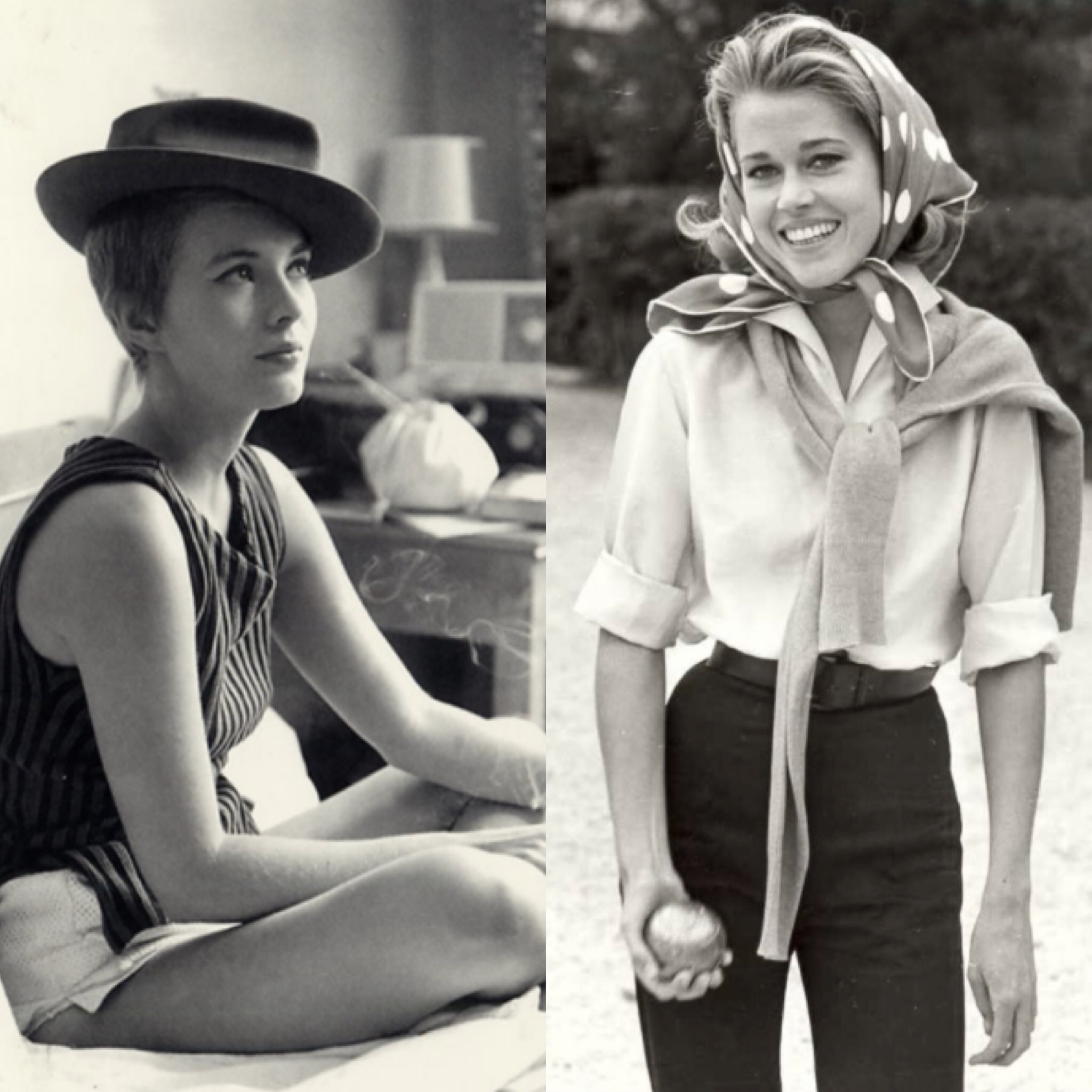Listen to this episode on Apple Podcasts and Spotify.
This episode was originally released on July 4, 2017. Listen to help prep for the next episode of our new season, The Old Man is Still Alive.
Jean Seberg made her first two films, Saint Joan and Bonjour Tristesse, for director Otto Preminger, a tyrannical svengali character whose methods would traumatize Jean for the rest of her life and career. No wonder she rebelled against this bad dad figure by marrying a handsome French opportunist. Meanwhile, Jane Fonda moves to New York, joins the Actors Studio, takes up with her own hyper-controlling male partner, and tries to define herself as something other than Henry Fonda’s daughter.
SHOW NOTES:
Sources:
Jane Fonda: The Private Life of a Public Woman by Patricia Bosworth
The World and Its Double: The Life and Work of Otto Preminger by Chris Fujiwara
Played Out: The Jean Seberg Story by David Richards
Preminger: An Autobiography by Otto Preminger
“Two Saint Joans, Old and New” by L.R. Swainson, The Age, February 12, 1957
Photo of Otto Preminger kissing Seberg from Los Angeles Times, October 22, 1956
Please note: as an Amazon Associate Karina earns from qualifying purchases. #ad
Music:
All of the music used in this episode, with the exception of the intro and outro, is from royalty-free music libraries and licensed music collections. The intro includes a clip from the film Casablanca. Outro song: “Since U Been Gone” by Kelly Clarkson. Excerpts from the following songs were used throughout the episode: “Meet Me In Queens 1, 2 and 3” by Örjan Karlsson, “By the Lake in the Evening” by Franz Gordon, “Be Still” by Johannes Bornlöf, “Widows Dance” by Håkan Eriksson, “Musique A La Carte 01” by John Åhlin, “Weekly” by Martin Gauffin, “Swing Manouche 05” by John Åhlin, “Old Time Action 2” by Gunnar Johnsén, “Cadillac Quiff Boys 1” by Victor Olsson, “Hot Rod Rebels 5” by Victor Olsson, “Hippies On A Bus 1” by Martin Landh, “It Takes Four” by Niklas Ahlstrom, “Readers Do You Read” by Chris Zabriskie.
Sponsors:
This episode is sponsored by Blue Apron, Naturebox and Squarespace.
Credits:
This episode was edited by Sam Dingman, and produced by Karina Longworth with the assistance of Lindsey D. Schoenholtz. Our logo was designed by Teddy Blanks.













































